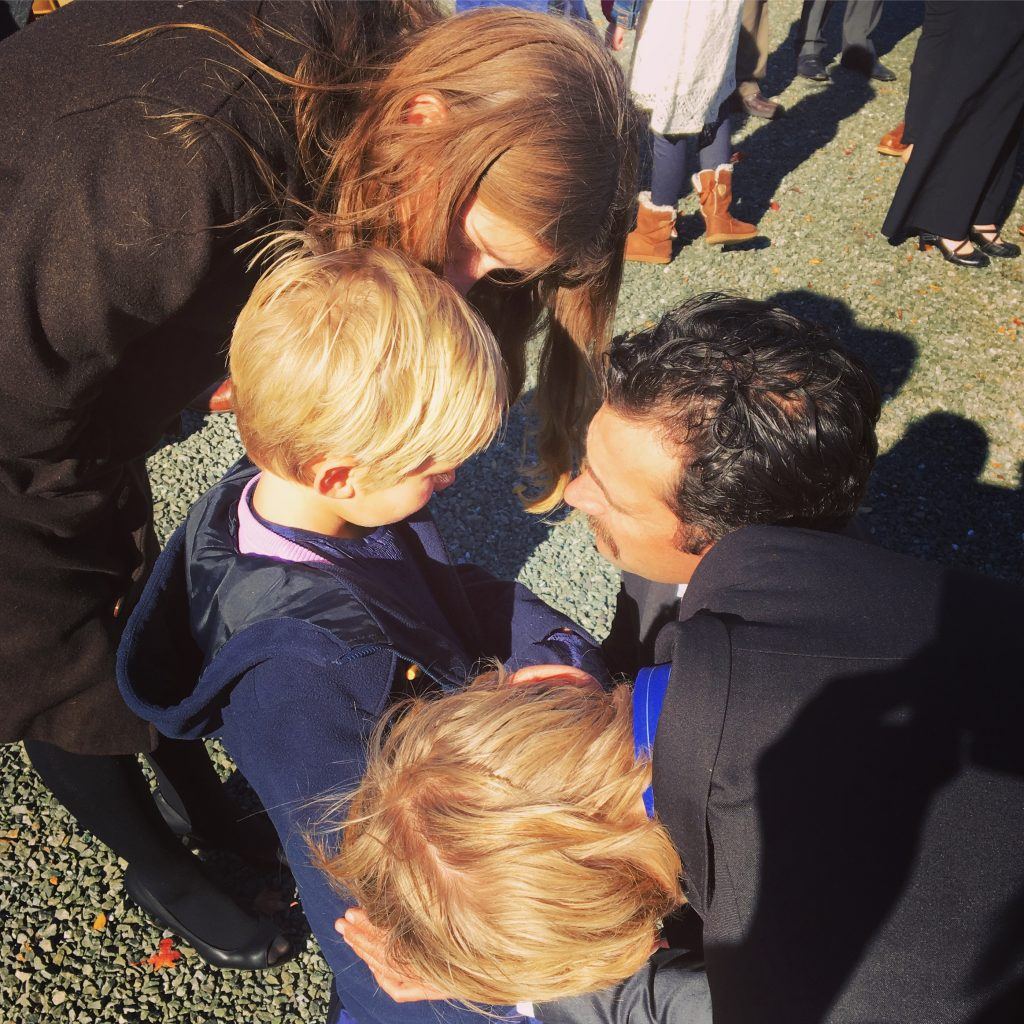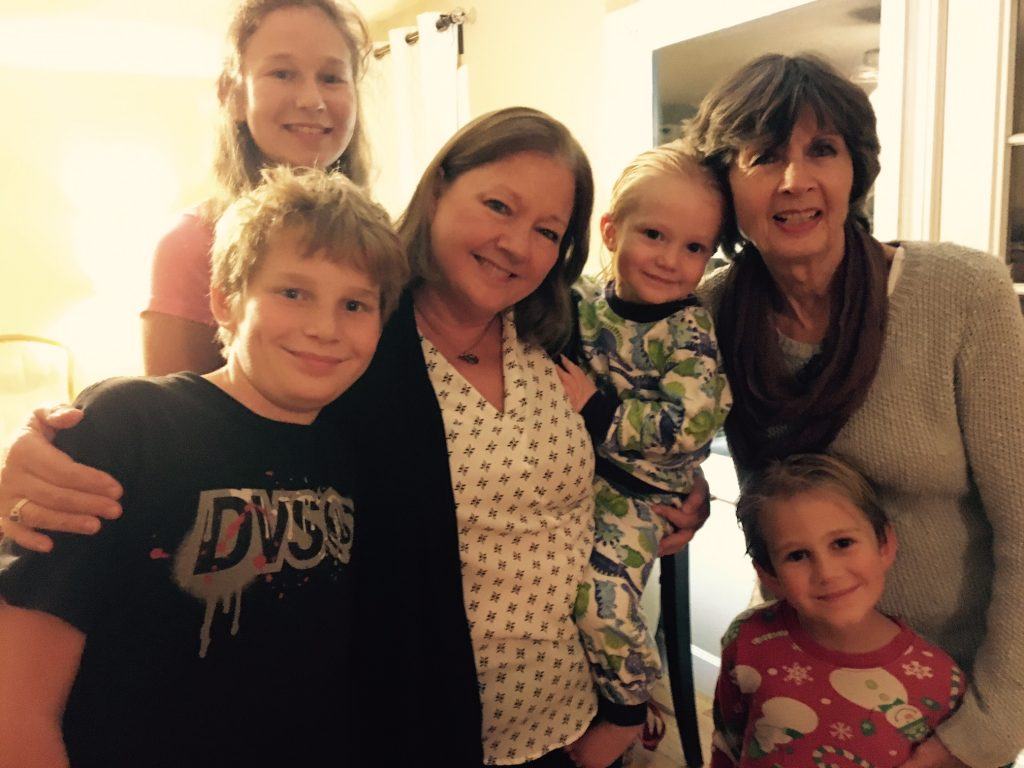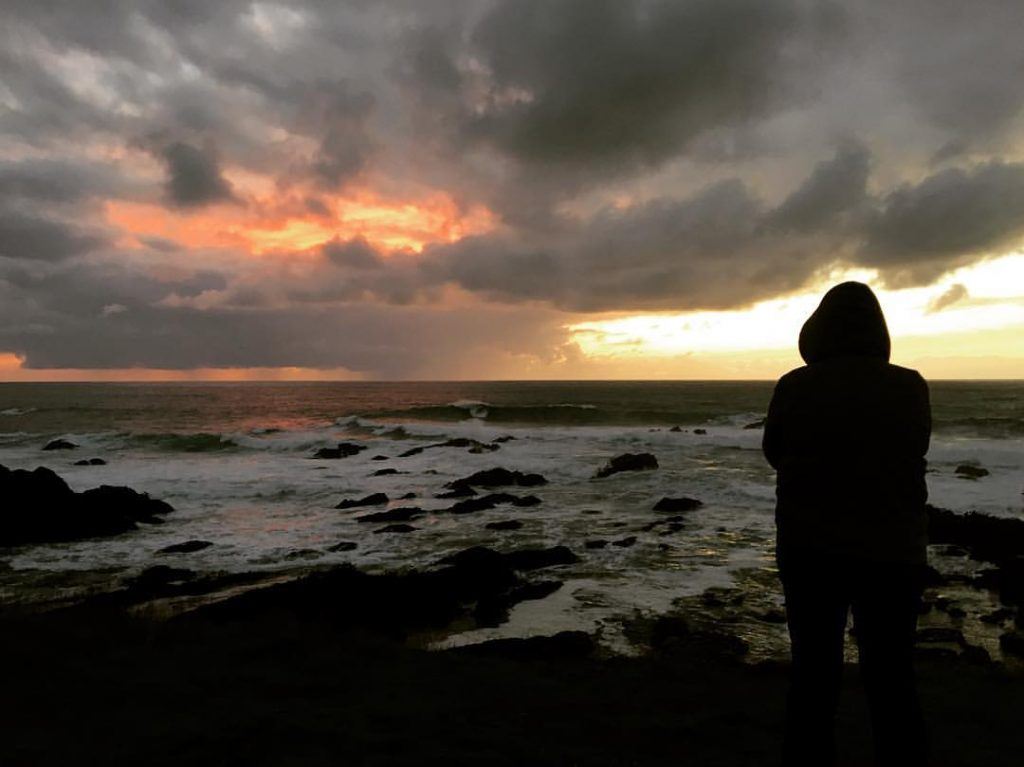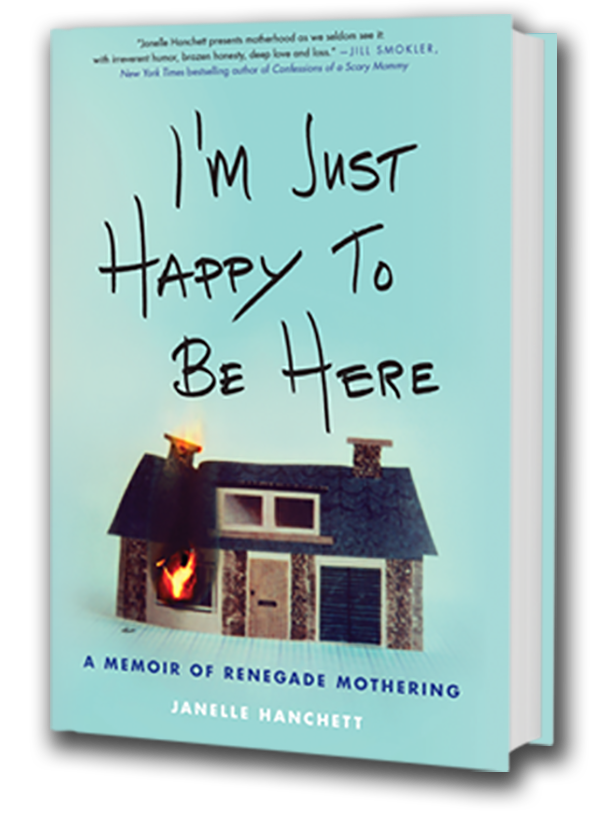I generally try to avoid writing “helpful instructional” posts, mostly because I don’t really know what the hell I’m doing (you know, in life), but every now and then, fate hands me some piece of information that I think may be helpful to others, so I share what I know. For example, alcoholism.
And now, traumatic death and grief.
For those of you who don’t know, on the evening of November 9th, 2016, my grandmother was murdered by my mentally ill cousin. I was pulling out of my kids’ school parking lot the next morning when my mother called, screaming.
And in that moment I was inducted into the traumatic death grief circle. I don’t love it here, and hope you never join me, but you or somebody you know probably will.
I want to write what I’ve learned about grief because let’s be honest, nobody knows what the hell to do when a friend’s sister, child, spouse or parent suddenly dies. Nobody knows what to do when somebody’s loved one slowly dies. I didn’t. I sent a text or call or card, flowers or food or chocolate, and moved on. If it was a close friend, I showed up once or twice.
I see now that I could have done better for my friends. And I will now.
It’s not surprising we sort of suck at this. We live in a culture that does its best to protect us from aging and dying – botox, face lifts, endless “anti-aging” creams, sending our elderly to homes – so I get the feeling most of us don’t want to move too close to the topic of death, and the grieving among us become death beacons. We’re like giant glowing WE ARE ALL GOING TO DIE marquees.
And who wants that?
BORING.
When it comes to death and dying, we want to show up for a moment, touch it for a second, then recede quickly back to our fantasy of safety. There’s nothing wrong with that fantasy. In fact it is necessary for life: How else would we feel comfortable every day hurling down a freeway in a box of metal with thousands of strangers who are probably texting?
Delusion of safety.
And believe me, after having it ripped away, I realize fully how we NEED that delusion. Because I’m terrified all the time now, and I sure won’t weep when that’s over. (My dog suffocated in an insulated lunch bag 5 weeks after my grandmother was killed, and we found him dead in the morning, and it was precisely at that point my psyche shifted into random death can occur at any moment mayday WE ARE NOT SAFE mode. And now I’m weird AF but getting better.).
I’ve read a lot of posts about “What not to say to grieving people,” and while I suppose that’s helpful, I’m not into it. People say stupid shit. People said profoundly insensitive things, and honestly, if you message a person whose grandmother was murdered wanting details of the crime because you saw it on the news and you’re living out some detective fantasy, nothing I can say will help you. And yes, that happened. More than once.
But most of the time, people just don’t know what to say. Every time somebody said, “I know what you’re going through. My grandma died last year of old age.” I wanted to be like, “Yeah that’s not actually the same thing as having your grandmother stabbed to death by a family member so please stop,” but I knew that person was trying to reach out, to empathize, to help. So for sure their words were not “perfect,” but it’s small, you know?
It stung because it reminded me of my own sense of isolation and loneliness – as in, what sort of freak has this happen in their family – but during those first couple months, damn near everything hurt like hell. Everything reminded me of the trauma. I had to get off the internet entirely. I was a raw open wound and the world was unknowingly chucking salt into the center of it about 80 times a day. So it was more about ME than them. They were never gonna win with me. I hurt too much.
Plus, how can we make hard and fast rules about what to say or not say in a time as personal as grief? For me, I had to make some sick ass jokes. I needed to laugh about some really dark shit – not at the expense of my grandmother, but rather, the situation in general – because the weight of my sadness was crushing and I needed relief to breathe. At some point, I needed maniacal laughter, maniacal laughter to open a vent and let a little of the insanity of the situation out – my brain unable to hold it. My heart unable to house it. My thoughts unable to reason with it.
It’s not about saying the perfect thing.
It’s about showing up and meeting people where they are and I think we do that through opening our eyes and really seeing people, in all their grieving mess, and not making it about ourselves, our comfort, our fear. I know immediately when I’m around a friend who I can be honest with and those with whom I need to give the “Oh I’m fine” runaround.
But here’s what I really want you to know:
Grief is a physical pain. It hurts the actual body. In headaches, tension, anxiety, exhaustion – my bones ached. My face. My head. So I appreciated physical help: laundry, cooking, food, cleaning.
Grief scatters the mind. I straight up forgot about a button on my car that unlocks the doors from the driver’s door. I used it a thousand times, then forgot about it entirely for weeks. I’ve missed more appointments the past 4 months than probably the past 3 years of my life. I will commit to something on Thursday and forget on Friday. I can’t figure out simple questions. I grow confused easily. So I appreciated people’s patience with my mistakes and when they didn’t require me to help solve their emotional problems as perhaps we had done in the past, because holy mother, I HAD NO MORE TO GIVE.
Grief makes you super weird. My pain moved from a freight train slamming my body to waves of panic and terror and sorrow to a gray cloud descended over me all the damn time. A heaviness. A strange apathy. And then, at the strangest moments, the wave comes again, and I think maybe I can’t withstand this one.
And I want you to know how much terror is involved in grief like this. If this is true, what else can be true? What else can be taken?
Every time my kids want to ride their bikes, I want to say “no.” Every time my mom doesn’t text back at night, I wonder if she’s been killed, and my body physically responds. A friend showed up unexpectedly at 9:30pm one night and my heart raced for 30 minutes after because I thought he was the police, there to tell me somebody had died. The simple walk to the door had me panicked. This happens 10 times a day, still, in response to random tiny events. My intellect says, “Janelle, this is nonsense. Stop. My body and heart say: ‘DANGER.'”
I walk around with that inside all the time, and the world doesn’t know.
So yeah, it’s weird and dizzying and painful for a long time, in a literal, material way – and sometimes I feel like I’m going to get carried away into oblivion, and just then, I get a message from a friend that says, “Hey I’m thinking of you and you don’t need to respond but know you are buoyed, and we will not let you drown.” And I cannot tell you how much I think those messages actually made me survive.
And it was the people who kept sending them and calling two weeks, one month, two months after it happened – and still bring it up sometimes – that helped me beyond measure because they give me permission to keep talking when I was afraid to “bring people down,” and they slammed that sense of isolation.
Because in our busy lives coupled with the desire to distance ourselves from death, once the funeral is over or a month has passed, the world says, “Oh you’re fine now let’s get back to the usual programming,” and that is precisely when the agony settles in: Reality to the new life.
But where did everybody go?
Back to life. Back to the routine. I get it. But there are a few friends who stick around, who keep showing up, who keep asking, “How are you?” in a way that really wants to know, and they keep us alive. They keep us above water.
So now I’m going to show up for the grieving when everybody else has stopped asking. When everybody else thinks it’s “over” and “time to move on,” I’m going to come to your door through word or body, and I’m going to say, “Hey. I’m here.”
And whatever happens with you will become the power to get us both through. Your world is falling, and I know it, but I’m here with you so let’s get weird and real until all the waves have crashed, and we’re just sitting here again in the sunshine.
I’ll remind you it will come, as they have done for me.
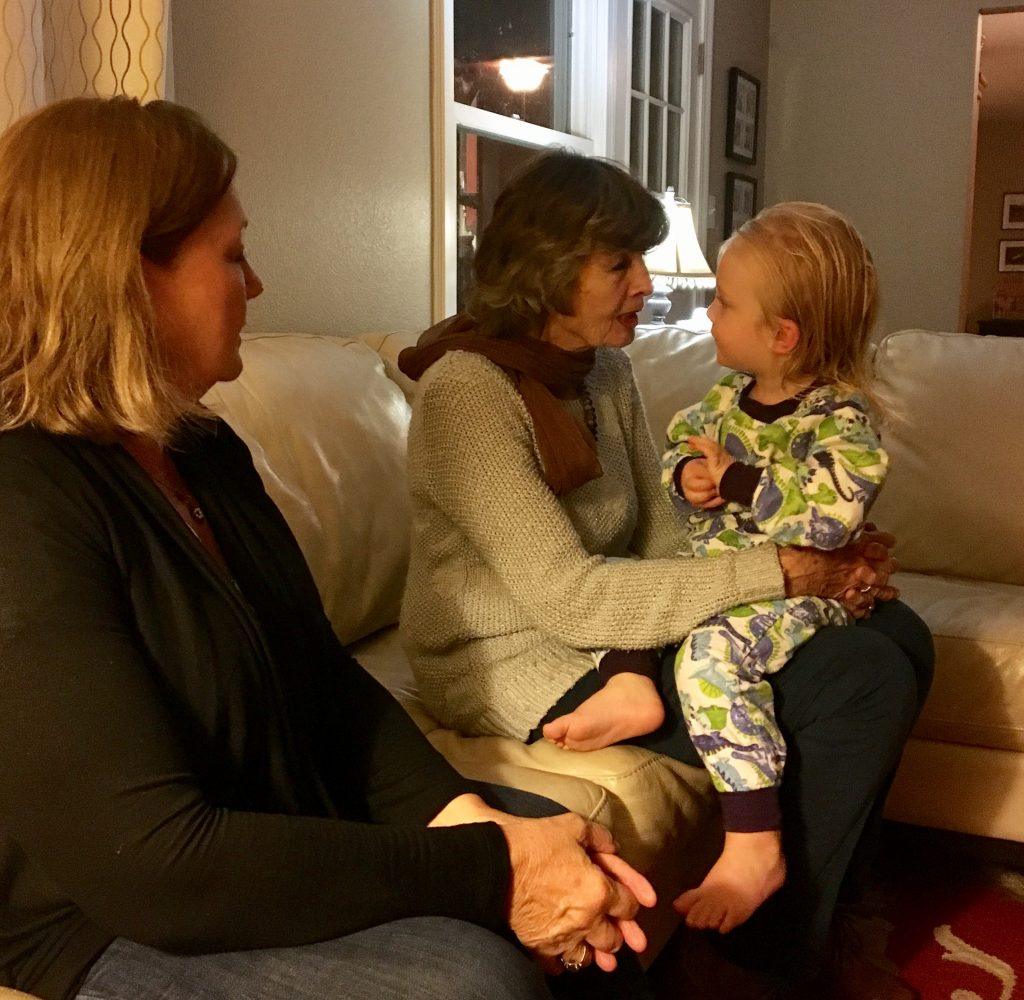
With my Arlo a few days before she died. I don’t know what I’ll do when he outgrows those dino pajamas. She thought they were so cute.
